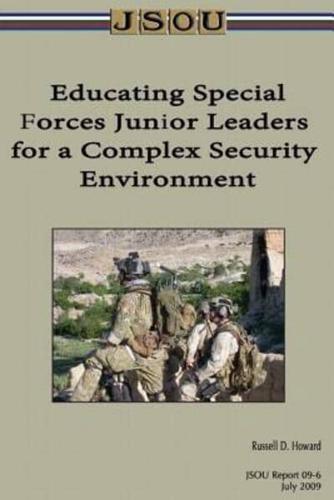Publisher's Synopsis
I n this paper, Brigadier General (Ret.) Howard argues for graduate level education for the junior leaders of our Special Forces (SF). By exploring the SOF future strategic environment that includes globalization, demographic trends, competition for resources, transnational nonstate actors, advanced technology, and emerging powers Brigadier General Howard identifies "cultural competency" as critical to the development of junior SF officers. The need for the SF operator, at once, to effectively interact with indigenous peoples, interagency counterparts, and transnational, nongovernmental players suggests that a new program of graduate level study is needed early-on in the officer's career.By Howard's analysis, such graduate programs should focus on developing one's intellectual capacity to synthesize information concerning areas such as interagency relationships, language proficiency, cultural, socialpolitical anthropology, negotiation, and cross-cultural communications. So educated, the junior SF officer is enabled to adapt and apply his intellectual prowess to confront the daily challenges he will certainly face in the field. General Downing stated that SF officers are "the senior U.S. representative and implementer of U.S. foreign policy"..."out there." Howard suggests that programs at Naval Post Graduate School and other traditional graduate programs do not educate junior SF officers because those students are typically majors (O-4s) that move on to senior positions after graduate school. Howard argues, earlier educational opportunities should be available to the junior SF O-3s-this is where additional graduate level effort is needed.










